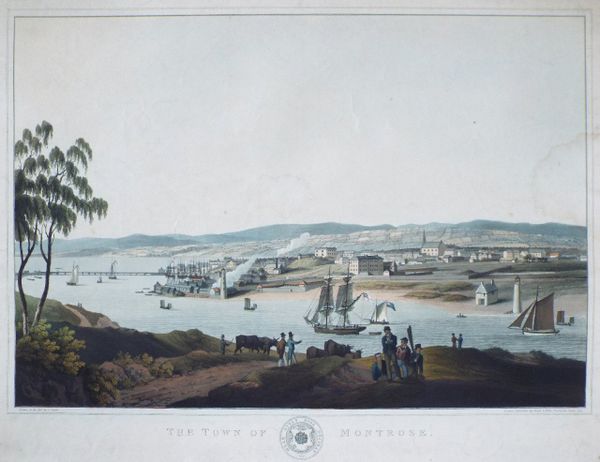Annotation:Montrose Bridge: Difference between revisions
No edit summary |
m (Text replacement - "Century Gothic" to "sans-serif") |
||
| (2 intermediate revisions by one other user not shown) | |||
| Line 1: | Line 1: | ||
__NOABC__ | __NOABC__ | ||
<div class="noprint"> | <div class="noprint"> | ||
<p><font face=" | <p><font face="sans-serif" size="4"> Back to [[{{BASEPAGENAME}}]] </font></p> | ||
</div> | </div> | ||
---- | ---- | ||
| Line 7: | Line 7: | ||
---- | ---- | ||
<div style="page-break-before:always"></div> | <div style="page-break-before:always"></div> | ||
<p><font face=" | <p><font face="sans-serif" size="2"> | ||
<div style="text-align: justify; direction: ltr; margin-bottom: 90px; margin-left: 70px; margin-right: 120px;"> | <div style="text-align: justify; direction: ltr; margin-bottom: 90px; margin-left: 70px; margin-right: 120px;"> | ||
<br> | <br> | ||
'''MONTROSE BRIDGE'''. Scottish, Jig (6/8 time). E Minor. Standard tuning (fiddle). AABB'. The Montrose Bridge spans the Stromnay ("tide race river" in Old Norse), the original harbour settlement at the mouth of the river South Esk, whose rapid tidal current fills and empties Montrose Basin twice every day. A marker at the bridge site explains: | '''MONTROSE BRIDGE'''. Scottish, Jig (6/8 time). E Minor. Standard tuning (fiddle). AABB'. The Montrose Bridge spans the Stromnay ("tide race river" in Old Norse), the original harbour settlement at the mouth of the river South Esk, whose rapid tidal current fills and empties Montrose Basin twice every day. A marker at the bridge site explains:[[File:montrose1824.jpg|600px|thumb|right|Montrose, 1824. The Timber Bridge is at the extreme left.]]<blockquote> | ||
< | |||
''Until the late 18th century the only means of crossing the river at Montrose, on the coastal route from Aberdeen, was by an ancient ferry to Ferryden,'' | ''Until the late 18th century the only means of crossing the river at Montrose, on the coastal route from Aberdeen, was by an ancient ferry to Ferryden,'' | ||
''on the south side of the river. The lowest bridging point was then the medieval bridge at Brechin, seven miles inland. At the time the river was'' | ''on the south side of the river. The lowest bridging point was then the medieval bridge at Brechin, seven miles inland. At the time the river was'' | ||
| Line 28: | Line 27: | ||
</font></p> | </font></p> | ||
<div class="noprint"> | <div class="noprint"> | ||
<p><font face=" | <p><font face="sans-serif" size="2"> '''Additional notes''' </font></p> | ||
<p><font face=" | <p><font face="sans-serif" size="2"> | ||
<font color=red>''Source for notated version''</font>: - | <font color=red>''Source for notated version''</font>: - | ||
<br> | <br> | ||
<br> | <br> | ||
</font></p> | </font></p> | ||
<p><font face=" | <p><font face="sans-serif" size="2"> | ||
<font color=red>''Printed sources''</font> : - | <font color=red>''Printed sources''</font> : - | ||
<br> | <br> | ||
<br> | <br> | ||
</font></p> | </font></p> | ||
<p><font face=" | <p><font face="sans-serif" size="2"> | ||
<font color=red>''Recorded sources'': </font> <font color=teal> - Archibald Duff ('''Collection of Strathspey Reels &c.'''), 1794; p. 8. </font> | <font color=red>''Recorded sources'': </font> <font color=teal> - Archibald Duff ('''Collection of Strathspey Reels &c.'''), 1794; p. 8. </font> | ||
</font></p> | </font></p> | ||
<br> | <br> | ||
---- | ---- | ||
<p><font face=" | <p><font face="sans-serif" size="4"> Back to [[{{BASEPAGENAME}}]] </font></p> | ||
</div> | </div> | ||
__NOEDITSECTION__ | __NOEDITSECTION__ | ||
__NOTITLE__ | __NOTITLE__ | ||
Latest revision as of 19:06, 6 May 2019
X:1 T:Montrose Bridge M:6/8 L:1/8 R:Jig B:Archibald Duff – Collection of Strathspey Reels &c. (1794, p. 8) Z:AK/Fiddler’s Companion K:Emin B,|EFE G2B|EFE E2G|F2D D2F|ABG FED| EFE G2B|EFE E2g|fed Bc^d|e3E2:| |:f|g2e eBe|g2e e2g|f2d d2f|aba fdf| |1g2e eBe|g2e e2g|fed Bc^d|e3E2:| |2gbg faf|gbg efg|fed Bc^d|e3 E2||

Until the late 18th century the only means of crossing the river at Montrose, on the coastal route from Aberdeen, was by an ancient ferry to Ferryden, on the south side of the river. The lowest bridging point was then the medieval bridge at Brechin, seven miles inland. At the time the river was navigable as far as Old Montrose.
In 1776 a fine stone bridge ws constructed over the North Esk at Kinnaber, three miles north of Montrose. This was followed in 1783 by a bridge over the South Esk at Dun, on the west side of Montrose Basin. Fears of trading losses for the Royal Burgh prompted the magistrates to petition for a bridge at Montrose. In 1792 an Act was raised for a toll bridge incorporating a drawbridge at the southern end. This "Timmer Brig" built of timber with stone abutments at either end was constructed across the river at this point to Inchbrayock, or Rossie Island, and was opened in 1795.
As might have been expected, the timber bridge only lasted 35 years before it had to be replaced due to the depredations of marine life. It was replaced by a suspension bridge in 1829, and a sturdier one in 1930 to accommodate the increased weight of traffic.
